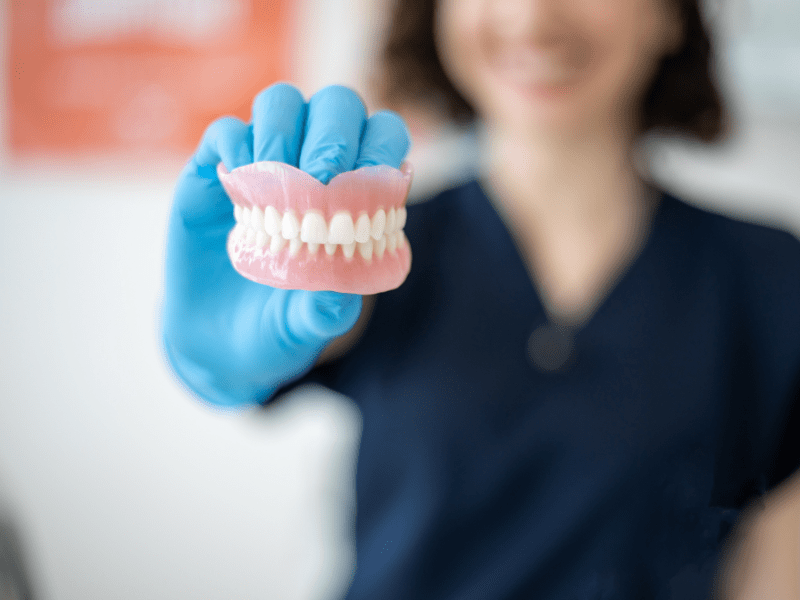The Most Common Reasons For Tooth Pain
Mysterious tooth pain is sure to put a damper on your day. Going to the dentist wasn’t on your agenda – it never seems to come at a good time. You might think you can just ignore it until it goes away, but you can’t stop thinking about it.
The good news is, there’s a few common causes of tooth pain that can help you narrow down what might be bothering you. You’ll still need to see a professional, but once you do, you’ll be on your way to feeling much better.
Tooth Decay
One of the most common and most often suspected causes of tooth pain is tooth decay. Tooth decay describes damage to the outer enamel or the inner dentin of your tooth. This damage occurs when sugars in the food you eat stay in your mouth, feeding the bacteria and creating acids. Plaque is then formed, and if it is not removed by regular brushing, flossing or rinsing, it can eat away at your tooth – causing decay.
Tooth decay can lead to cavities. Your dentist can detect tooth decay and cavities during a checkup, either by using a dental mirror and pick or with an x-ray. Your dentist will then remove the decayed portion of your tooth and replace it with a filling.
If you suspect you have tooth decay, get to a dentist as soon as possible. The longer you wait, the more painful it will become.
Cracked Tooth
A cracked tooth is not always obvious. Symptoms of a cracked tooth include pain while chewing or when your tooth is exposed to extreme hot or cold. When the outer enamel of your tooth is cracked, the pieces may move around, irritating the inner pulp and causing you to feel sharp pain.
If you suspect you have a cracked tooth, see a dentist right away. The sooner you see a dentist, the more likely your tooth can be saved, and will not need to be extracted.
Abscessed Tooth
If your toothache is severe and persisting, you might have an abscessed tooth – an infection at the root of your tooth. You may also notice redness and swelling of the gums. As with many infections, you may have a fever or swollen glands in your neck. A bad taste or odor in your mouth is a sure sign of an infection.
It’s crucial that you see a dentist, who will prescribe antibiotics and may drain the abscess. If the infection continues to spread, it can cause irreversible tissue damage.
Sinusitis
Sometimes, tooth pain can be deceiving. It may not have anything to do with your teeth at all. A dull ache in your upper back teeth and a headache are telltale signs that you have sinus pain. You may also be coughing and blowing your nose, bringing up yellow-green mucus
In this case, your dentist will not be able to help you. You’ll need to see your doctor or an ear nose throat (ENT) specialist, who will determine the cause of your symptoms and may prescribe an antibiotic.
Tooth Sensitivity
If you feel slight pain when breathing in cold air, eating hot, cold, sweet or sour foods, you might have tooth sensitivity. Sensitivity is very common. It’s caused by brushing too aggressively or consuming highly acidic foods that have worn down your tooth’s protective enamel.
Sensitivity toothpaste is available over-the-counter to help protect your teeth. Your dentist can prescribe a fluoride rinse or gel that can decrease sensitivity and provide protection against decay.
Grinding Teeth
Many people grind their teeth in their sleep, or even during the day without realizing it. You may also have a headache or pain in your jaw. Grinding your teeth wears down the enamel, leaving you vulnerable to tooth decay.
Grinding your teeth, or bruxism, is sometimes caused by stress. You will need to learn to relax your jaw, or you might need a mouth guard to wear at night. Your dentist can confirm signs of bruxism and have a mouth guard custom made to fit your teeth.
See Your Anchorage Dentist For Sweet Relief!
Many people procrastinate about going to the dentist when they experience tooth pain. It’s not unusual to feel afraid of receiving a diagnosis or painful treatment.
However, allowing your pain to progress should be a much scarier thought. The sooner you get treated, the sooner you’ll feel peace of mind – not to mention relief from pain.







